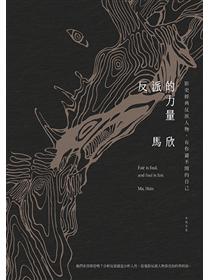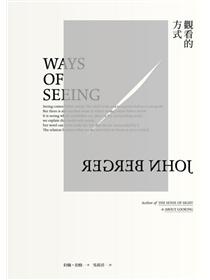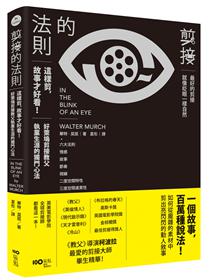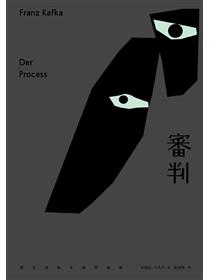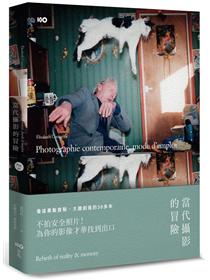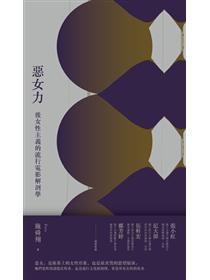章節試閱
序之一
取代解釋學,我們需要藝術的情色觀──莎妹的反詮釋劇場
紀蔚然 (國立臺灣大學戲劇系教授)
莎士比亞的妹妹們的劇團無疑是1990年代中期以來,台灣劇場界最前衛、最勇於挑戰美學界限與觀眾的劇團。
這個劇團名字怪,風格更怪;它的組合也很奇怪。雖說是台大幫(創始團員都自台大畢業),但其實是雜牌軍,成員來自不同科系,且沒有一個是科班出身。據我所知,幾個核心團員私底下各過各的,不搞麻吉,讓外人感覺不出革命情感,或許因為如此,團內少有人事紛爭,沒有個性衝突,所以才可以活這麼久。
自1995成立以來至今,莎妹一共推出四十一部作品。其中,我觀賞了一些,有的在台灣,有的在國外。雖然曾寫過劇評,我不敢說完全了解莎妹到底在搞什麼鬼。《王記食府》大概是我最有把握「看得懂」的一齣:不過是兩個人煮菜給觀眾吃,主戲是那幾道一中一西的菜色,我們只要動用舌頭,不用偏勞智力,便能對它品頭論足。
我:好不好吃?
妻:還不錯。
我:但這算是劇場嗎?
這是我寫過最短的劇評,而且頭一遭用「好不好吃」起頭。然而,這是否為劇場的提問頗為貼切。
莎妹極難歸類。反戲劇、反敘述、反人物、反道德、反人文主義的文人劇場、風格取向劇場、概念劇場、後現代劇場、後後現代劇場、不食人間煙火劇場……這些都適用,卻沒一個是真正貼切的。從觀眾的角度,我們或可藉由蘇珊‧宋坦(Susan Sontag)「反詮釋」的概念進一步了解莎妹。
宋坦提倡反詮釋,認為詮釋是強制賦予作品意義的暴力,在西方這種衝動自柏拉圖以降以至於今,從未稍歇,如今來到批評專業化的年代,更形氾濫。詮釋是反動的,使作品窒息,她說。在詮釋的過程中,純粹的能量被智力遏抑了,感官因理性而變得遲鈍了。莎妹的劇場重感官,甚至在文字充斥的戲碼裡,自我反射性的文字的也是為了勾引感官,而不只是抒情表義。「取代解釋學,我們需要藝術的情色觀。」就這一點而言,莎妹完全辦到了。
我戲稱莎妹為「不食人間煙火劇場」,因為乍看之下,莎妹好似不食人間煙火,然而在這十六年裡的四十一部作品,所有關乎人間煙火的命題,如愛情、疏離、寂寞、生命、死亡、身體、回憶、幻想、社會、歷史,甚至時尚等等都有淋漓盡致的呈現。只不過,呈現的方式不是我們熟悉的寫實,也不是我們習以為常的敘事:它的質地既感官又細緻,既形而上又具體而微。
In place of a hermeneutics we need an erotics of art: the interpretation-resistant theatre of SWSG
Wei-jan Chi , professor of Drama and Theatre at National Taiwan University
Without a doubt, Shakespeare's Wild Sisters Group is the most avant-garde company of Taiwanese live theatre since the mid 1990s and the bravest in terms of challenging aesthetic limits and theatre-goers.
Its name is weird and its style is weirder, not to mention the weirdness of the team itself. Though it can be labeled an NTU gang for being founded by graduates of the National Taiwan University, the team is a mixed bag in fact, with current members from various disciplines none of which is actually “theatre studies”. As far as I know, the few core members have separate personal lives – no in-group entanglement here -- such that casual onlookers may be unable to discern much camaraderie among them. Perhaps this is precisely why the company seldom has administrative disputes or personality conflicts, enabling it to have survived for so long.
Since its founding in 1995, SWSG has released 41 works in total. Some of these I have seen in Taiwan and others abroad. Despite having reviewed them, I dare not claim that I entirely understand how SWSG mucks around with things. One work that I most confidently “understand” is “Mansion de Wangs” -- though it entails two people cooking dishes to be tasted by the audience, enabling us to appraise the featured Chinese and Western dishes with our pallates only, not our frontal-lobe intellect.
Me: How does it taste?
My wife: Not bad.
Me: But is this theatre?
That was the shortest review I have written and the first time I have opened my writing with the phrase “how does it taste”. “Is this theatre?” is nevertheless an apt question.
SWSG is extremely difficult to label. Call it anti-dramatic, anti-narrative, anti-character, anti-morals, anti-humanist artsy theatre; or call it style-oriented theatre, conceptual theatre, post-modern theatre, post post-modern theatre, ivory tower theatre…… all these are applicable but none truly befitting. As viewers, we can perhaps better understand SWSG through Susan Sontag’s discussion of “anti-interpretation”.
Sontag is against interpretation; she regards it as an agreession forcing meaning upon the work. In the West, this impuse has neither ceased nor abated since the time of Plato, and has only overflowed in this era of professional criticism. According to Sontag, interpretation is largely “reactionary” and “stifling”, a process entailing “the hypertrophy of the intellect at the expense of energy and sensual capability.” The theatre of SWSG, however, accentuates the sensual. Even in their text-heavy works, reflexive words serve not only to emote and inform but also to entice the senses. “In place of a hermeneutics we need an erotics of art,” wrote Sontag; in this regard, SWSG has thoroughly succeeded.
I call SWSG “ivoary tower theatre” in jest because, at first glance, they indeed seem to dwell therein. Yet among the 41 works they presented over the past 16 years they have vividly rendered all the wordly topics from beyond the tower, including love, alienation, loneliness, living, dying, the flesh, memories, fantasies, society, history and even fashion. It is merely that their manners of expression are neither literal nor narrative as we would otherwise find comfortable or familiar. Their texture is both sensual and nuanced, both metaphysical and concrete with details.
妹妹們作品2號
我們之間心心相印──女朋友作品1號
Three Color-haired Women Dance upon the Broom
魏瑛娟 Yc Wei, 1996
我們之間心心相印──女朋友作品1號
@胡淑雯
阿海動了手術,名字換掉一個字,更動了性別,遺下這封信,要我轉交「莎妹」。
莎妹幾十個,你要哪一個?我問。
任何一個。阿海說。正的歪的,只要是ㄇㄟ都好。
那,可以直接轉給阮文萍嗎?
阿海說不可以,「我會害羞」。
那個晚上很拉。那齣戲。三個女子,在酒吧裡拉拉扯扯、磨磨蹭蹭,將心事翻上表皮,拉出手臂的肌理、顎的疼痛、腰的感傷、腿的慾望,拉出眼淚、呢喃,與叫喊,他們說皮膚底下還有還有,還有皮膚──以咿咿呀呀的兒語。我吃了厚厚的晚餐,拉了屎,拉了朋友,拉著我那怎麼也拉不直的自然捲,去看「我們之間心心相印」。我是為了Pj去的。三個演員,三頂爆炸頭。爆紫、爆粉、爆灰爆藍還是爆綠?早已不記得。我只是想看見Pj而已。
莎妹還小的時候,曾經以學生劇團的型態,在T大開辦表演課程。
為了要看見Pj,比巧遇更自然地看見Pj,我去應徵臨時演員。
「講話不要低著頭,」指導老師魏瑛娟說,「把你的臉交給觀眾。」我退出場邊,再來一次,照樣縮著背、低著頭。我是一隻害羞的灰鼠,埋頭啃食眼前的劇本,將一臉愧疚捲進尾巴。那句可惡的台詞,像一截濕答答的魷魚絲,怎麼也嚼不斷。我被編派的句子很短,僅僅兩個字,「借過」,我卻怎麼也過不去。我不會演戲,我只是想看見Pj而已。
Pj是個沉默的女生,但沉默並不妨礙他的表演。他的肢體很強。貓臉般細不可查的情緒,彷彿連微笑都懶(但那分明是微笑呀!不是嗎?),比手掌更活潑的腳掌,踝骨下的陰影,膝蓋的閃光,聳動的肩膀。微微大舌頭的腔調,很性感。
我的害羞比Pj的沉默更強,不曾與他說上任何一句,只除了一次例外。
第三堂課結束,我在一陣歡快的吆喝底下,以「自己人」的身份,心虛地,在劇團的宵夜裡蹭了一個位子。午夜的麵攤炫著醜陋的光束,像一顆審判的太陽,踹著我的眼皮,將十九歲的心事照得慘白。Pj沒來。
我大口吃飯,舀著麵湯,失落感抵不住饑饞,活生生的一隻低等動物。肚子飽了,湯碗涼了,菸抽完了,口袋空了,鋁罐裡僅餘的啤酒也發熱了,Pj倏然現身,騎著機車路過,向大家道晚安。哈拉幾句之後,他要走了,我跟上眾人的話尾,說了bye bye。
Bye bye。再見。這是我們之間僅有的對話。第一句也是最後一句,唯一的告別──夾擠於同儕的唇齒間,像一個脫落的迷,一條乾巴巴的粉絲。
終究,我在舞台上軋了一角,在一場群戲中與一個男孩共舞。男孩名叫但唐謨。他是我唯一的舞台經驗裡,最最美麗的回憶:格子襯衫、黑色手鏈、小鹿般澄澈的眼睛。直到今天,我依舊記得他手插褲袋、孩子氣鬆闊的步態,飄忽徘徊,徘徊於世故的熟情之外。
公演結束的八點半,大家在速食店晚餐。漢堡剛咬一口我便紅了眼眶:我終究證明了自己是個,恐懼舞台的娘兒們(噢,有人要皺眉頭了,「正確」的語言檢查員),從今而後我再也沒有機會通過演戲,成為別人。我知道自己平庸得並不可憐(與廣大的庸眾同樣),只能在「僅此一具」的可悲身軀之中演出我自己。
我無法變成Pj,也無從愛到Pj。我缺乏那種「可以變成別人」的強大自信,一如我缺乏「渴望讓自己消失」的那種自恨。
啜泣之後換來的不是勻靜的呼吸,我在人潮爆漲的「溫蒂漢堡」放聲哭泣,對著一路相陪的男朋友說:我要回家,我要回家。所有人都冤枉了他,以為他虧待了我。只有我知道那些眼淚的意義:我無法將自己安頓成為「我自己」,而我喜歡的女生,彷彿命定,一概無視於我的陽剛、不喜歡我的陰柔。
後來,Pj成為莎妹的班底,我最愛的女主角。當年那個陪我去看「我們之間心心相印」的男生,幾年後墜入「妄」與「恨」的沼澤,再也不認識我了。
Three Color-haired Women Dance upon the Broom
Shu-Wen Hu
Hai went through surgery, changed a character in the name, swapped gender, left this letter, and asked me to give to the “Shakespeare’s Wild sisters”.
There are dozens of wild sisters, which one do you mean? I asked.
Any one will do. Hai said. Pretty or not, as long as it’s a chick.
Then can I just give it to Uen-Ping Juan?
Hai said no, “I’m too shy”.
It was a drag night. The play. Three women, dragging and rubbing and revealing deep secrets, dragging out the muscle in the arm, pain in the jaw, sentiments of the waist , desires in the leg, releasing the tears and murmur and yells, they say there is more under the skin, there is the skin – and the baby talks. I had a heavy dinner, took a crap, dragged a friend, dragged my natural curls that just wouldn’t straighten, and went to see Three Color-haired Women Dance upon the Broom. I went for Pj. Three actors, three afros. Purple afro, pink afro, grey afro, blue afro or green afro? I no long remember. I just wanted to see Pj.
When Shakespeare’s Wild Sisters was still young, it was once a student theatre group, offering acting classes at University T.
In order to see Pj, to run into Pj more naturally, I auditioned for a temp.
“Keep your head up when you talk,” instructor Yc Wei said, “show your face to the audience.” I backed off the stage, replayed my part, again hunching with head down. I was a shy gray mouse, nibbling away at the script before me. That pathetic line like a piece of dampened shredded dried squid that I just couldn’t chew threwthrough. I was assigned a very short line, only two words, “excuse me,” but I just couldn’t get past. I couldn’t act; I just wanted to see Pj.
Pj is a quiet girl, but silence interferes not with her acting. She has a way with body language. Emotions undetectable as on a cat face, as if too lazy to even smile (but that really is a smile! Isn’t it?), feet more animated than palms, the shadow beneath the ankle, the flash glow on the kneecap, a shrug from the shoulder. Accent slightly slurred, sexy.
My shyness is stronger than Pj’s silence, never once said a word to her, except once.
After the third session, with an enthusiastic invitation, I gained a place in the mid-night snacking troupe as “one of us”, though I didn’t deserve so. The noodle stand with an ugly aura in the middle of the night, like the sun on the judgment day, kicking at my eye lids, shinning too bright a light on the secrets of a nineteen-year-old. Pj was no show.
I ate in large gulps, accompanied by soup, sense of loss losing to hunger, truly a lower animal. Stomach full, bowl cooled, cigarette smoked, pocket empty, and remaining beer in the can warmed; Pj suddenly showed up, passing by on the motorcycle bidding goodnight to all. A little chitchat, off she goes, I latched on the end of the conversation and managed a bye bye.
Bye bye. The only conversation between us. The first and the last, the only farewell, squished from among the peer, like a lost puzzle, a piece of dried rice noodle.
Eventually, I gained a spot on the stage, dancing with a boy in a scene. A boy named Tang-Mo Tan. He is the most beautiful memory in my one and only stage performance experience: checkered shirt, black bracelet, doe-eyed. Up to this day, I remember him with hands in the pocket, marching a childlike walk, lingering here and there, lingering outside sophistication.
Eight thirty, end of the performance, all eating dinner at the fast food place. Took a bite of the burger and tears came to my eyes: ultimately, I proved myself to be a girly chick (uh-oh, someone is going to frown, the language inspector for “correctness”) with stage fright, from then on I never played again, to become someone else. I know myself to be plain but not pitiful (no more than the general public), and can only play myself in this “one and only” pathetic body of mine.
I couldn’t become Pj, and never got to love Pj. I lack the powerful confidence to “be able to become someone else”, just as I lack the self-hatred of “desiring my own disappearance”.
Followed by sobbing is not even breathing, I cried out loud in the overly-crowded Wendy’s Burger, told the boyfriend that had been with meby my side this whole time: I want to go home, I want to go home. Everyone thought he had wronged me. I was the only one who really understood what the tears stood for: I couldn’t settle for being “myself”, and the girl that I like, as if destined, ignored my masculinity, and disliked my femininity.
Eventually Pj became a permanent crew of the Wild Sisters, my favorite female protagonist. The boy that went to see Three Color-haired Women Dance upon the Broom with me fell, a few years later, into the swamp of “delusion” and “hatred”, and knows me no more.
(Translated by Nai-yu Ker)
妹妹們作品3號
自己的房間
A Room of One’s Own
魏瑛娟 Yc Wei, 1997
自己的房間
@李維菁
1.
滲水了,我聽見泊泊的水聲從四方牆壁滲出,天花板也濕答答了。
地面上的水位逐漸升高。
我被冷藏在我房間的床中央,醒不來。
水要淹上來了。我的皮膚可以感受到冷意。但我醒不來。
滲水了。我聽見他的聲音說著。
那聲音要喚我清醒,但我的四肢無法動彈。
滲水了。那聲音又喚了一次。
我出不了聲也動不了,想醒過來卻繼續睡。
滲水了。溫柔的聲音想救我。
滲水了。
我認出來那個聲音,是弟弟,是我弟弟山田。
2.
我的腦被囚禁在他自己的房間,出不來。
3.
那隻貓的靈不知道跟了我多久。我渾然不覺。
我躺在床上忽冷忽熱,發汗驟冷,徹夜難眠。醫生檢查不出問題,一切正常。
我想是某次經過停車場的時候直視著地上一隻腹肚被車直接輾爆裂開的貓的屍體,但頭尾完整,牠的雙眼仍處在死時的驚嚇錯愕,橫張向天。牠破裂的肚腸還有濃血在流,天氣熱,成群蠕動的灰白蛆蟲從腹部大洞啃食牠的屍身。
我就是無法移開視線。眼看著牠的肉一點點一點點被吃掉吃掉吃掉。
我的眼淚對著這場我無計可施的尋常暴虐流下。
我對著這場殘殺悲鳴出聲。
在烈日下我跌跌撞撞哀號地走回我的房間。
事後想起,牠應該是那時候開始跟著我的。
於是開始了長期的夜間身體冷熱交替,像是得了夜裡發作的瘧疾一樣。
眼球幾近玻璃透明的老女人在路邊突然叫住我,小姐你要靜坐,我檢查著她的透明眼球不知道她到底看不看得到。她的髮色蛋黃,枯瘦的臉,有種妖異之感。在我望著她不知如何是好的時候,她伸手摸我的臉並且把手放在我的腰上,我感到腰際一股熱氣竄升。
我向後退了兩步,然後繼續往前。
那天晚上我又開始忽冷忽熱,全身扭動起來,頭頂好熱好痛,突然一陣擠壓鬆脫,頭頂的壓力解除,我清楚地感受到什麼東西從我頂部脫離出去。我撐起身體,見到一個黑暗中閃著綠光的貓形動物背影,從我房間走出去。
那是誰?
是我的貓嗎?
我驚慌地叫牠,回來吧,沒事的,媽媽在這裡。
那綠色貓形體一直往外走。
我突然虛軟無力,癱回在床上,昏睡過去。
第二天正午,醒了過來,漫天白金陽光刺進眼睛。
我忽冷忽熱的症狀那天起消失了。
4.
我的房間因性慾張揚,膨脹成南瓜,上頭裝飾著過時繁複的蕾絲,成為一間古典矯飾荒謬到只有浪漫的新娘房。想當然地,新娘一人在房間扭動嚎叫,鮮血淋漓,仿冒著性交的體操彈跳與叫聲,戳瞎她自己的眼睛,換上玻璃透明的眼球。
山田在地球另一個角落,看姊姊戳瞎她自己,不以為意又帶點滿意地笑了起來。
5
我與弟弟深夜到大街上的旅館投宿,我們要一間房間過夜。我們一進那房間我就覺得不對勁,弟弟沒說話。我躺上床,弟弟選了靠門的那張床。
鬼怪列隊,在兩張床四周盤旋惡意侵擾。
我問我弟弟,我們為什麼要在這個房間裡頭呢?
我弟弟沒說話。
天色亮了,我弟弟要我出去,到街上等著,他開始殺鬼。
我行經櫃檯看見昨天夜裡引我和我弟弟進入那惡鬼之房的旅館經理。我憤憤走過去伸手打了他兩大耳光。
我靠在旅館外的石柱上等我弟弟。我感受到弟弟正痛開殺戒。
鬼怪哭叫與發狠的怒吼,風雲旋轉天色瞬間變暗,氣流旋轉暴風凌空,眾鬼嚎叫,刺穿耳膜一樣的高頻聲響。
我站直了身體,颶風一樣的氣流席捲整個街道,往前暴衝,裡頭盡是猛鬼扭曲的面目,還在最後的發狠掙扎。末日聖詩,妖異天地。我緊緊抱住石柱免得被風一起刮走。
高頻收住,聲響靜默,空氣恢復平靜。
我弟弟從惡鬼旅館中走出。
6
山田殺了姊姊,第二天醒來變成了好人。
7
一點錢與自己的房間,於是我們寫作。
玻璃鐘罩是普拉絲的房間,她在裡頭寫作,她聞著自己的瘋狂腐朽,她不喜歡住在裡頭。
要進自己的房間以寫作,想出自己的房間以免瘋狂。
吳爾芙去看普拉斯,看著眼前與自己相同的躁症患者兼購物狂,女人的歷史與瘋癲的編年,她也見到普拉斯巫術練習與施法符咒。
我們召喚全宇宙被棄的冤魂,全來助我。
張愛玲在她的房間裡看著成群的黑色甲蟲攻佔牆壁,一點一點變成一片一片暗黑,逐漸擴大成咬囓性的疼痛襲擊,黑色大軍即將淹沒吃掉她的整個房間與她的腦子。她奪門而出。
她通知清潔公司派出大隊進房撲殺蟲類、殺菌消毒,她一回去便發現那蟲怎麼殺也殺不乾淨,黑甲蟲還是回來,一隻一隻又成一片一片。她驚慌噁心地告訴除蟲公司,那蟲子很特殊,是特殊的異生物變體偽裝,殺也殺不盡,沒人理會她。她只好燒掉屋裡所有購自平價商場大紅大綠大花大草的廉價棉布洋裝,孓然一身,重新再買,連夜奔逃,到下一個旅館的一個房間。
那蟲應該暫時還不會來,還沒追蹤到她。
投水而亡,瓦斯窒息,孤獨以終。
長安城外一片月光。男盜女娼。
滿街都是遊盪的鬼魂,不是每個鬼都寫作。
我在我的房間死亡,我的白骨與我瘋狂購買的華服將千秋萬世永垂不朽。
A Room of One’s Own
Wei-jing Lee
1.
Water was leaking in from the four walls of the room, gurgling, I heard. The ceiling, too, was soaked wet.
The water level kept rising.
Frozen, I found myself confined stiffly in the middle of the bed, asleep.
Water was leaking in. I could feel the chill. But I couldn’t wake myself up.
“Water is leaking in,” I heard him whispering.
I realized that that voice had been meant to wake me up, but my limbs had all gone numb.
“Water is leaking in,” that voice again.
I couldn’t utter a single word. Nor could I move. I wanted to wake up, but in vain.
“Water is leaking in.” That voice of tenderness was meant to save me.
“Water is leaking in.”
Now I could recognize that voice. It was my brother. It was my brother, Yamada.
2.
My brain was forcibly constrained in its own room. No exit.
3.
The spirit of that cat had been stalking me, though for how long, I had no idea.
I, bedridden, suffered from intermittent fevers and cold fits too. The doctor couldn’t tell why. “Everything is fine.”
Then it occurred to me that some time back I saw a dead cat when passing through a car park. Its innards burst out from inside its stomach, eyes staring straight into the sky above, as if it’d been in shock still. Blood kept gurgling out, though the head and the tail were kept intact. It was blistering hot. Swarms of gray maggots were feeding on the corpse. Brutally.
I found it hard to take my eyes off the whole thing, but semi-voluntarily took in the scene of the maggots gnawing away its flesh, bit by bit.
At the sight of this everydayness which I couldn’t help with, I began to cry.
I whimpered at the cat and its tragic demise.
I stumbled back home under the blazing sun.
The cat, or the spirit of it, had begun to follow me ever since, I thought.
Then came the series of fevers and chills during the nighttime, as if I’d had malaria again like when I was a girl.
Suddenly, an old lady whose eyes had gone glassy called out to me, “You’d better do some meditating.” I stopped to examine her glassy eyes, trying to figure out whether she was blind. Her hair had turned kind of egg yolk yellow, her bony face sending out a sense of grotesqueness. Then, when confusion took hold of me, she touched my face and put her hands round my waist. I felt a heated steam rising in me.
Stepping backward a bit, I leaned forward again.
On that very night, I began to have sudden strokes of fever and cold again, and my body would twitch in infinite agony. Plus a damned splitting headache. But then, a force suddenly burst out of my head. The pressure was gone. I could feel something escape my head. I propped myself up to see the shadow of a feline animal shining a spooky green sneaking away from my bedroom.
“What is that?”
“Is that my cat?”
I cried in horror, hoping to get him back. “Everything is alright. Come back. Mom is in here.”
But that feline animal wouldn’t even turn its head.
A weak sense of vulnerability overwhelmed me. Then I collapsed and passed out.
I woke up again right at noon the next day. The sun pierced into my eyes.
All the symptoms had gone.
4.
My room inflated with a burgeoning sexual desire to be like a pumpkin decorated in old-fashioned and over-intricate laces. A weakly sentimental bride’s room stripped of everything but a fake touch of classicism. The bride would twitch and moan in the room, alone. She would squirm and shrill as if she’d been having sex, though covered in blood. Eventually the bride blinded herself, then putting a pair of glassy eyeballs back in the sockets.
Yamada bore witness to all that had happened to his own sister, from some other far-off corner of the planet. He laughed, coldly. Semi-satisfactorily.
5.
My brother and I found a decent hotel where we could spend the night. We asked for a room. No sooner had we stepped in the room than my brother began to sense something. He didn’t say a word, though. My brother chose the bed closer to the exit.
Then a procession of evil spirits marched straight in to hover over our beds, launching a series of malicious ambushes on us.
“Why this room?” I asked my brother.
A silence.
At daybreak, my brother asked me to wait outside the hotel. He had to kill the demons.
When I went passing by the manager who lured us in this haunted hotel the previous night, I angrily slapped him in the face.
I propped myself against a stone pillar outside the hotel, waiting. I could smell the slaughtering.
The sky suddenly darkened, and the ghosts roared like mad. Then a ferocious cyclonic storm broke out from inside the room. The ghosts kept roaring.
The ghosts kept roaring in a high-pitched shrill.
I stood straight to see the cyclonic storm sweep through the street. It dashed forward, with all the twisted faces of the ghosts spinning in it. They were struggling still. The biblical verses, a haunted world. I held tightly to the stone pillar, lest I be blown away in the wind.
6.
Yamada murdered his own sister too, and turned over a new leaf the very next day.
7.
With some money and a room of our own, we set to write.
The bell jar was Sylvia Plath’s room, where she spent time writing. She could smell her own maddened rottenness. She hated to be in it.
She went in her own room to write. She went out of it to avoid going crazy.
Virginia Woolf paid Plath a visit. Sternly she looked at this woman who too was a shopaholic and suffered a same schizophrenia. A history of women’s, and the crazy chronicle of women. Also, Woolf saw Plath practicing witchery and casting spells.
“We are beckoning all the abandoned ghosts of the universe, to help me.”
Eileen Chang saw in her own room swarms of black beetles occupying the walls. Bit by bit, the walls went black. They expanded and went on to gnaw on Chang’s brain. The room and her brain would be flooded anon. So she took flight.
She called the cleaning squad in for a thorough pesticide. On returning, however, she found the beetles could not possibly be rid of. The black beetles would come back again. They would even metamorphose to become very thin slices one by one. She, panic-stricken, told the squad that those bugs were very special, that they could be some kind of aliens in disguise. That they were irremovable. Nobody gave her a damn. She could not choose but to set a fire to all the cheap cotton dresses she’d bought from a dime store. She had to buy them again when better settled. She fled to another hotel.
Those bugs wouldn’t come back again anytime soon. They hadn’t detected her trace.
To die by drowning, by putting the head in the oven with the gas turned on. To die in absolute solitude.
A moonlit City of ancient Chang-an, where all men were robbers and women prostitutes.
Ghosts roamed the streets, though not everyone of them wrote.
I died in my own room. And my bones would live on with all the designer clothes I’d bought, in perpetuum.
(Translated by Hsuan-chieh Yeh)
序之一
取代解釋學,我們需要藝術的情色觀──莎妹的反詮釋劇場
紀蔚然 (國立臺灣大學戲劇系教授)
莎士比亞的妹妹們的劇團無疑是1990年代中期以來,台灣劇場界最前衛、最勇於挑戰美學界限與觀眾的劇團。
這個劇團名字怪,風格更怪;它的組合也很奇怪。雖說是台大幫(創始團員都自台大畢業),但其實是雜牌軍,成員來自不同科系,且沒有一個是科班出身。據我所知,幾個核心團員私底下各過各的,不搞麻吉,讓外人感覺不出革命情感,或許因為如此,團內少有人事紛爭,沒有個性衝突,所以才可以活這麼久。
自1995成立以來至今,...
 16收藏
16收藏

 12二手徵求有驚喜
12二手徵求有驚喜




 16收藏
16收藏

 12二手徵求有驚喜
12二手徵求有驚喜







